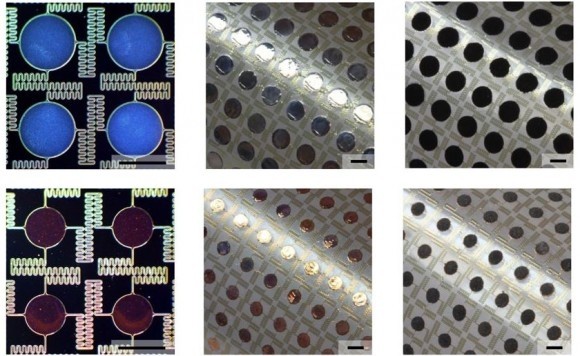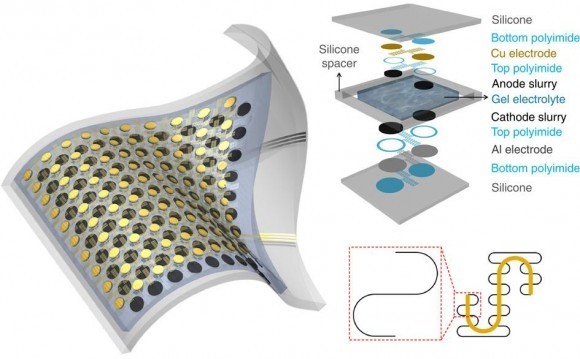Researchers have announced the development of a stretchable lithium-ion battery that could have countless industry applications, especially with the rising interest in flexible computing across consumer tech and other segments.
By using a process they call "ordered unraveling," John A. Rogers of the University of Illinois and Yonggang Huang of Northwestern University say their battery can be stretched up to 300% of its original size without losing functionality.
Without taking anything away from the device, its design seems fairly straightforward: energy storage islands and "serpentine" wire connections are placed in a sheet of polymer. Naturally, the polymer is flexible and stretchy, while the overlapping squiggly wiring can go along for the ride without being damaged.
Power-wise, the engineers say their solution performs similarly to a standard lithium-ion battery of the same size. It lasts for eight to nine hours and it can be recharged wirelessly, though the current prototype loses some capacity after about 20 recharges, so more research is necessary before it goes commercial.

"An important trend in electronics involves the development of materials, mechanical designs and manufacturing strategies that enable the use of unconventional substrates, such as polymer films, metal foils, paper sheets or rubber slabs," the researchers wrote in paper offered via Nature Communications for $32.

"The last possibility is particularly challenging because the systems must accommodate not only bending but also stretching. Although several approaches are available for the electronics, a persistent difficulty is in power supplies that have similar mechanical properties, to allow their co-integration with the electronics."
